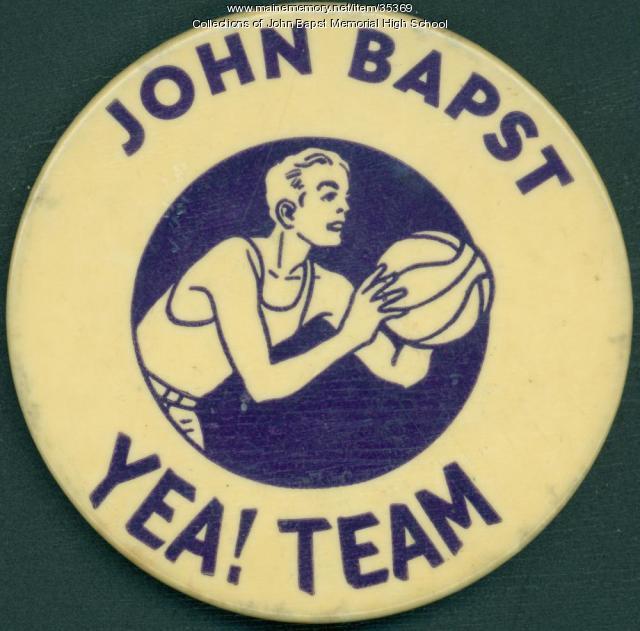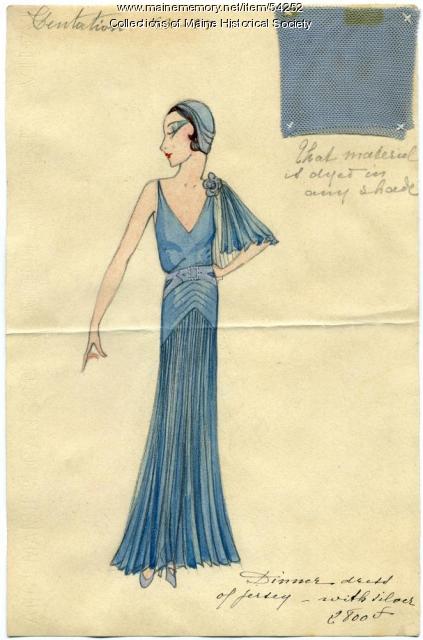Keywords: Sketches
- Historical Items (213)
- Tax Records (1)
- Architecture & Landscape (347)
- Online Exhibits (29)
- Site Pages (74)
- My Maine Stories (1)
- Lesson Plans (2)
Online Exhibits
Your results include these online exhibits. You also can view all of the site's exhibits, view a timeline of selected events in Maine History, and learn how to create your own exhibit. See featured exhibits or create your own exhibit
Exhibit
Drawing Together: Art of the Longfellows
Henry Wadsworth Longfellow is best know as a poet, but he also was accomplished in drawing and music. He shared his love of drawing with most of his siblings. They all shared the frequent activity of drawing and painting with their children. The extended family included many professional as well as amateur artists, and several architects.
Exhibit
Rum, Riot, and Reform - Politics and Enforcement
"… at Cooper Union Pittsburgh, 1877 Engraving from Sketches of the Life and Work of Capt. Cyrus Sturdivant, the Prisoner's Friend (New York: William…"
Exhibit
Selections from the Collections
Maine Historical Society staff come across unique and unforgettable items in our collections every day. While it's difficult to choose favorites from a dynamic collection, this exhibit features memorable highlights as selected by members of the MHS staff.
Exhibit
Building the International Appalachian Trail
Wildlife biologist Richard Anderson first proposed the International Appalachian Trail (IAT) in 1993. The IAT is a long-distance hiking trail along the modern-day Appalachian, Caledonian, and Atlas Mountain ranges, geological descendants of the ancient Central Pangean Mountains. Today, the IAT stretches from the Katahdin Woods and Waters National Monument in Maine, through portions of Canada, Greenland, Iceland, the Faroe Islands, and Europe, and into northern Africa.
Exhibit
Maine's corn canning industry, as illuminated by the career of George S. Jewett, prospered between 1850 and 1950.
Exhibit
Settlers' clothing had to be durable and practical to hold up against hard work and winters. From the 1700s to the mid 1800s, the women of Maine learned to sew by making samplers.
Exhibit
John Bapst High School was dedicated in September 1928 to meet the expanding needs of Roman Catholic education in the Bangor area. The co-educational school operated until 1980, when the diocese closed it due to decreasing enrollment. Since then, it has been a private school known as John Bapst Memorial High School.
Exhibit
Rum, Riot, and Reform - Taverns, People, and Scenes
"1900 Charles Quincy Goodhue (1835-1910) Pencil sketch Collections of Maine Historical Society In the tumult of the Revolutionary era, three taverns…"
Exhibit
Rum, Riot, and Reform - A Call to Temperance
"… published in The Napoleon of Temperance: Sketches of the Life and Character of the Hon. Neal Dow, Mayor of Portland and author of the Maine Liquor…"
Exhibit
Cosmopolitan stylings of Mildred and Madeleine Burrage
Born in Portland, sisters Mildred Giddings Burrage (1890-1983) and Madeleine Burrage (1891-1976) were renowned artists and world travelers. Mildred's experiences studying painting in Paris and Italy, and the sisters' trips to Mexico and Guatemala inspired their artwork and shared passions for cosmopolitan and stylish attire. Housed at Maine Historical Society, The Burrage Papers include selections of original advertising drawings called "line sheets" from Parisian fashion houses dating from 1928 to 1936. Images of Madeleine's gemstone jewelry and Mildred's artwork accompany intimate family photographs of the sisters.
Exhibit
Rebecca Usher: 'To Succor the Suffering Soldiers'
Rebecca Usher of Hollis was 41 and single when she joined the Union nursing service at the U.S. General Hospital at Chester, Pennsylvania. Her time there and later at City Point, Virginia, were defining experiences of her life.
Exhibit
Mainers have been held prisoners in conflicts fought on Maine and American soil and in those fought overseas. In addition, enemy prisoners from several wars have been brought to Maine soil for the duration of the war.
Exhibit
Rumford's Notable Citizens in the Civil War
A number of Rumford area residents played important roles during the Civil War -- and in the community afterwards. Among these are William King Kimball, who commanded the 12th Maine for much of the war.
Exhibit
Doing Good: Medical Stories of Maine
Throughout Maine’s history, individuals have worked to improve and expand medical care, not only for the health of those living in Maine, but for many around the world who need care and help.
Exhibit
Chansonetta Stanley Emmons: Staging the Past
Chansonetta Stanley Emmons (1858-1937) of Kingfield, Maine, experimented with the burgeoning artform of photography. Starting in 1897, Emmons documented the lives of people, many in rural and agricultural regions in Maine and around the world. Often described as recalling a bygone era, this exhibition features glass plate negatives and painted lantern slides from the collections of the Stanley Museum in Kingfield on deposit at Maine Historical Society, that present a time of rapid change, from 1897 to 1926.
Exhibit
Hiking, Art and Science: Portland's White Mountain Club
In 1873, a group of men, mostly from Portland, formed the second known hiking club in the U.S., the White Mountain Club of Portland, to carry out their scientific interests, their love of hiking and camaraderie, and their artistic interests in painting and drawing the features of several of the White Mountains.
Exhibit
A City Awakes: Arts and Artisans of Early 19th Century Portland
Portland's growth from 1786 to 1860 spawned a unique social and cultural environment and fostered artistic opportunity and creative expression in a broad range of the arts, which flowered with the increasing wealth and opportunity in the city.
Exhibit
Longfellow: The Man Who Invented America
Henry Wadsworth Longfellow was a man and a poet of New England conscience. He was influenced by his ancestry and his Portland boyhood home and experience.
Exhibit
Lt. Charles Bridges: Getting Ahead in the Army
Sgt. Charles Bridges of Co. B of the 2nd Maine Infantry was close to the end of his two years' enlistment in early 1863 when he took advantage of an opportunity for advancement by seeking and getting a commission as an officer in the 3rd Regiment U.S. Volunteers.
Exhibit
The boundaries of Maine are the product of international conflict, economic competition, political fights, and contested development. The boundaries are expressions of human values; people determined the shape of Maine.
Exhibit
Bookplates Honor Annie Louise Cary
A summer resident of Wayne collected more than 3,000 bookplates to honor Maine native and noted opera singer Annie Louise Cary and to support the Cary Memorial Library.
Exhibit
This Rebellion: Maine and the Civil War
For Mainers like many other people in both the North and the South, the Civil War, which lasted from 1861-1865, had a profound effect on their lives. Letters, artifacts, relics, and other items saved by participants at home and on the battlefield help illuminate the nature of the Civil War experience for Mainers.
Exhibit
The history of the region now known as Maine did not begin at statehood in 1820. What was Maine before it was a state? How did Maine separate from Massachusetts? How has the Maine we experience today been shaped by thousands of years of history?
Exhibit
These stories -- that stretch from 1999 back to 1759 -- take you from an amusement park to the halls of Congress. There are inventors, artists, showmen, a railway agent, a man whose civic endeavors helped shape Portland, a man devoted to the pursuit of peace and one known for his military exploits, Maine's first novelist, a woman who recorded everyday life in detail, and an Indian who survived a British attack.
























